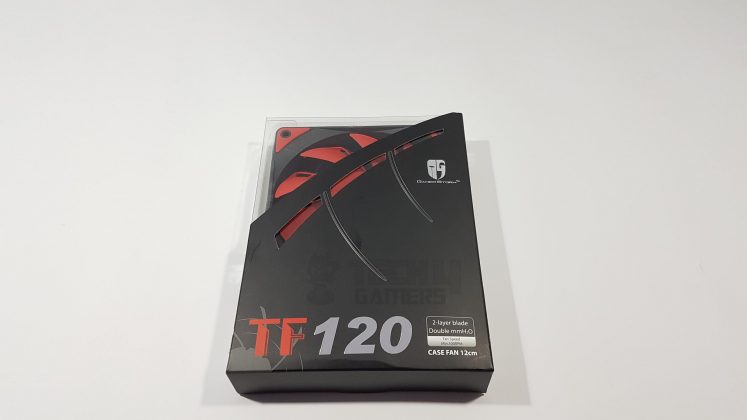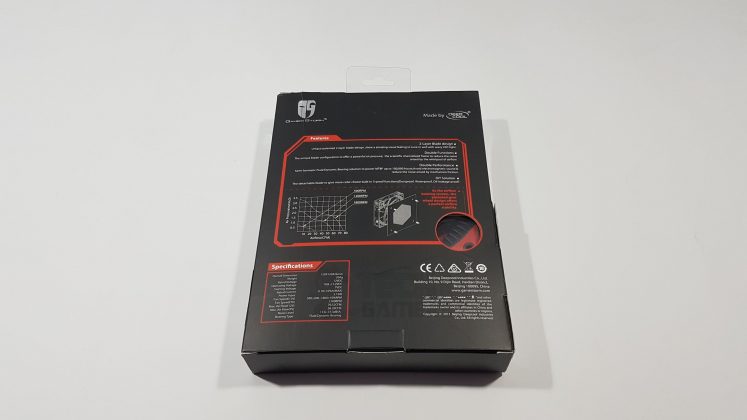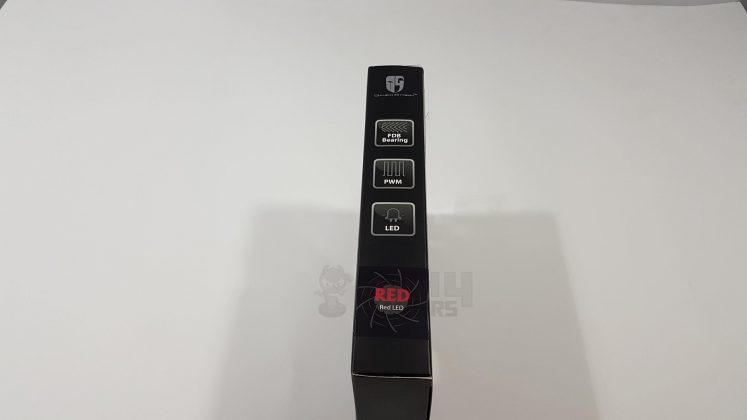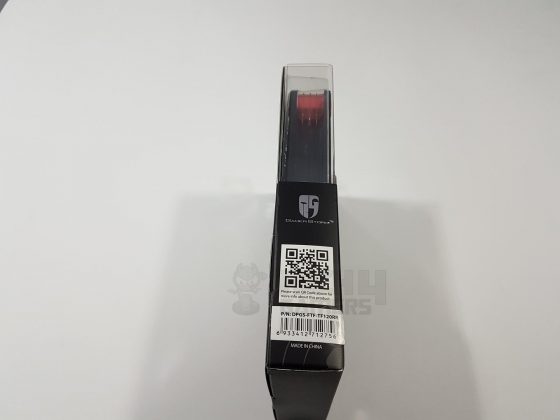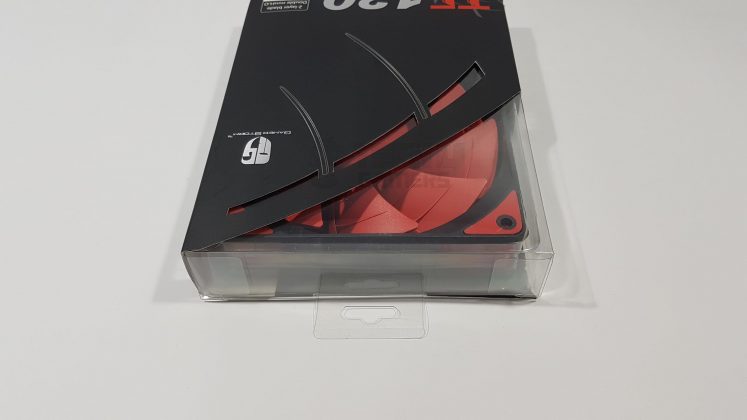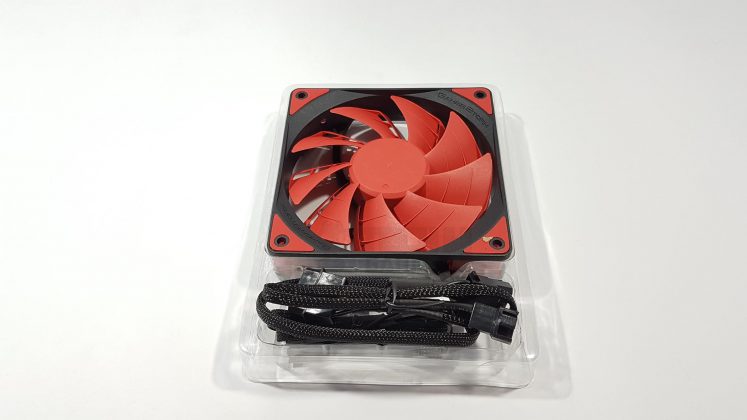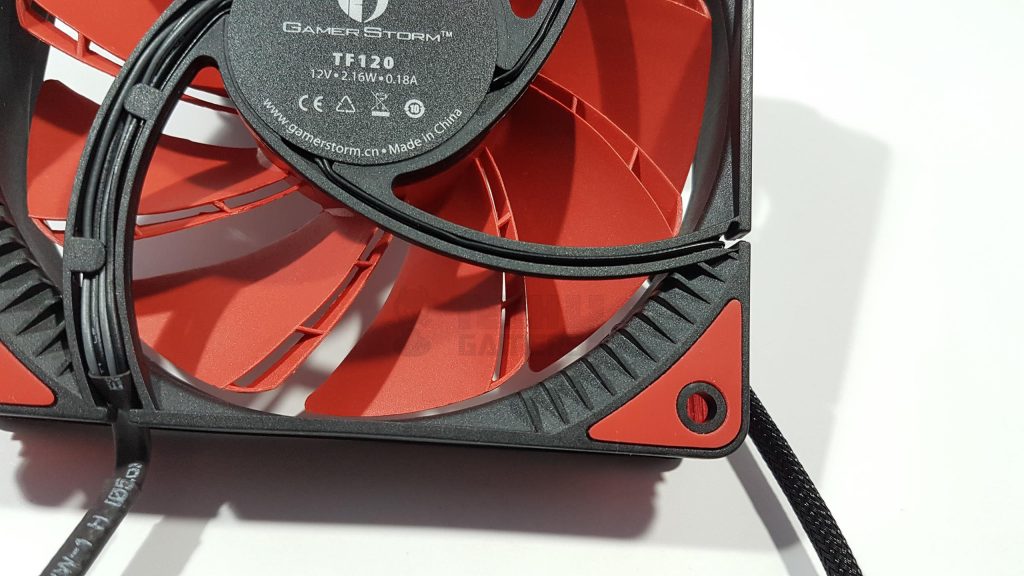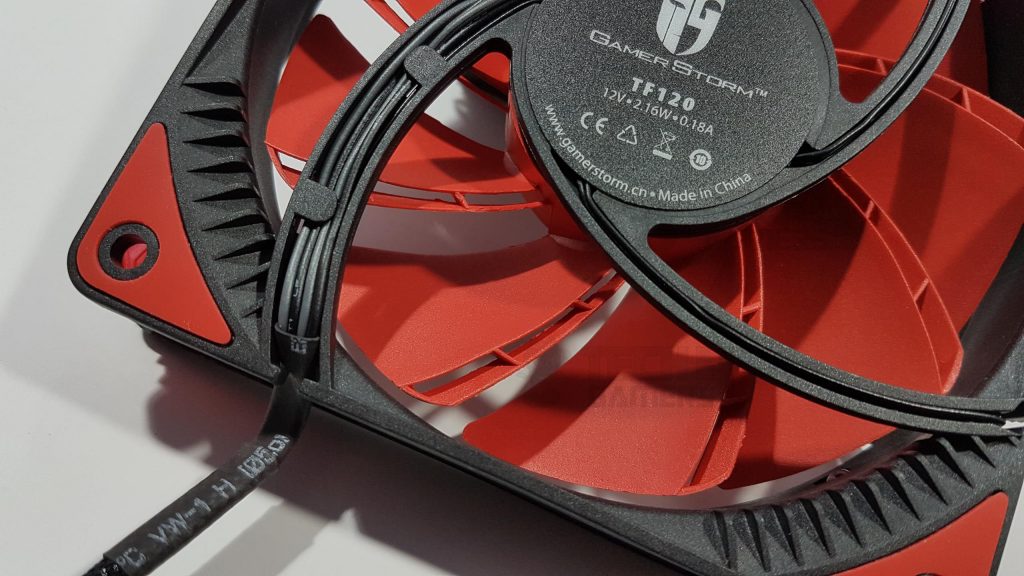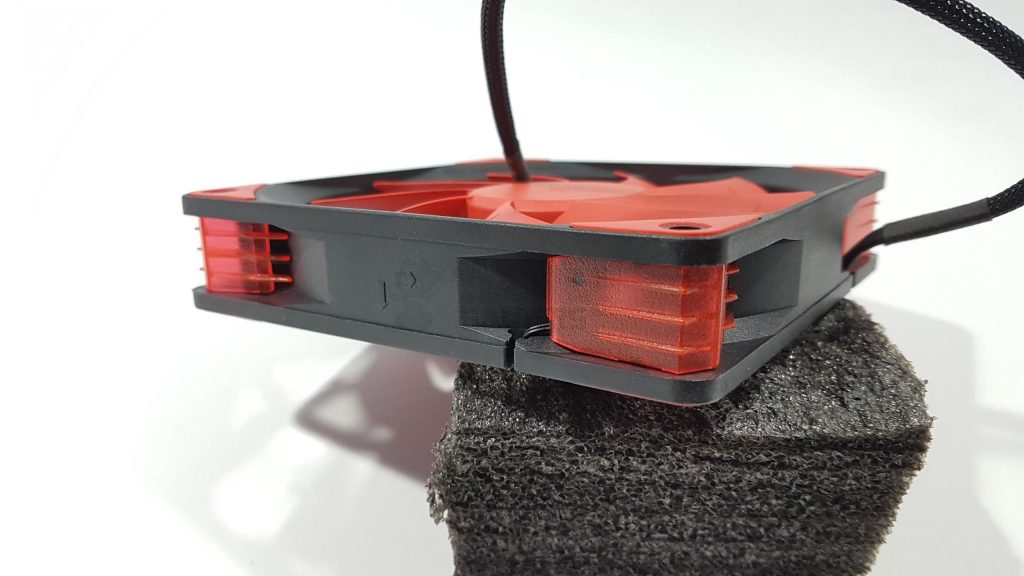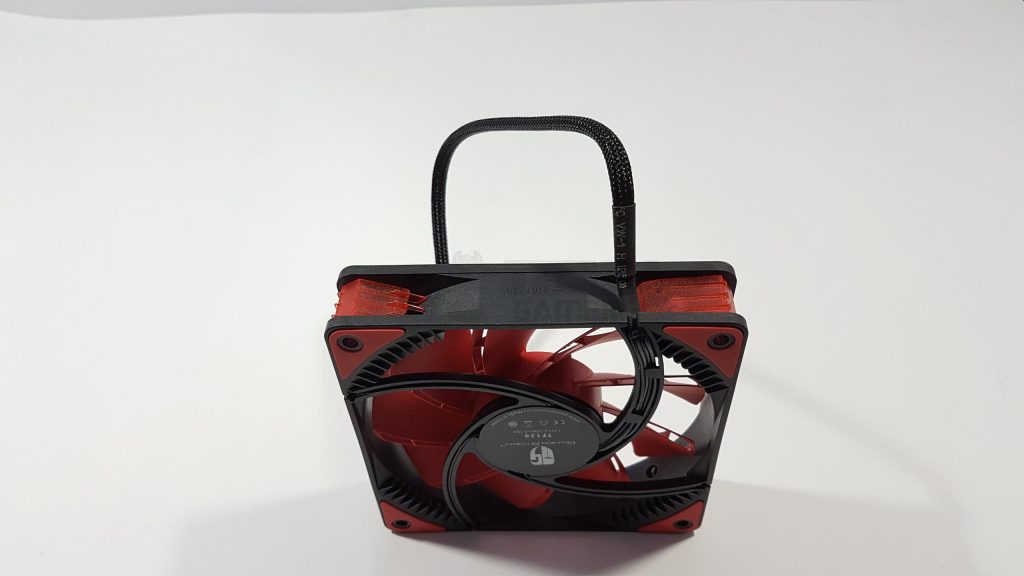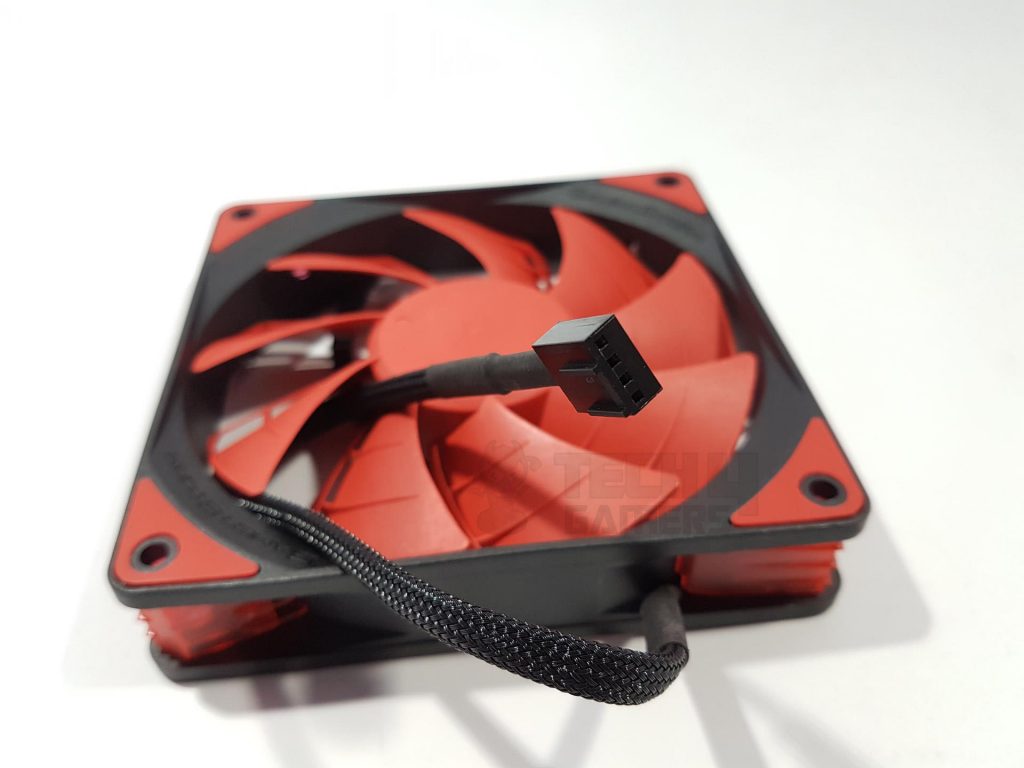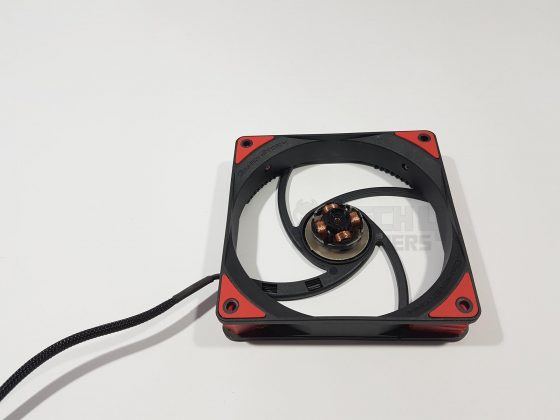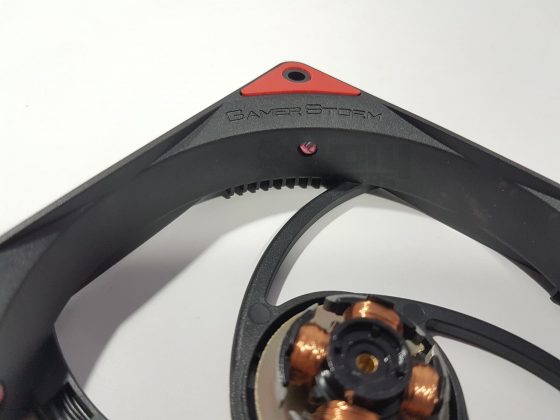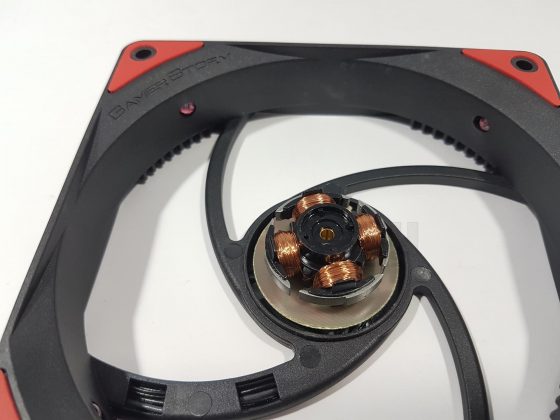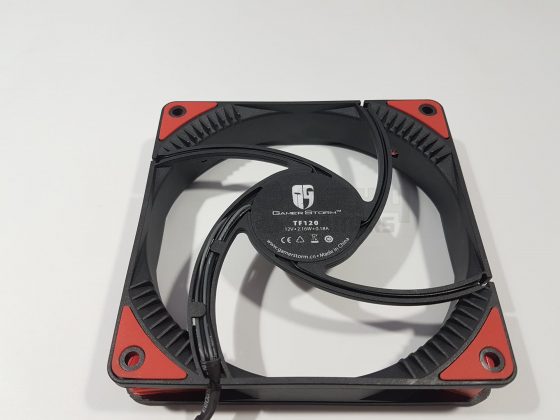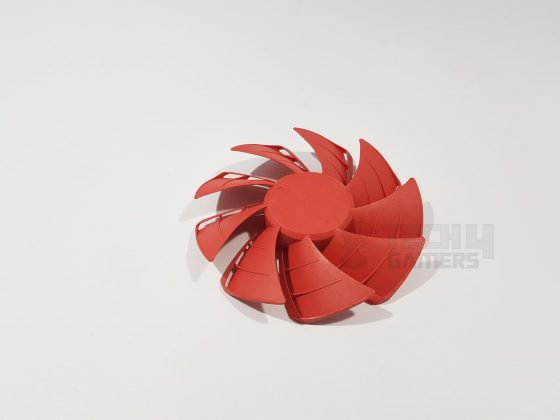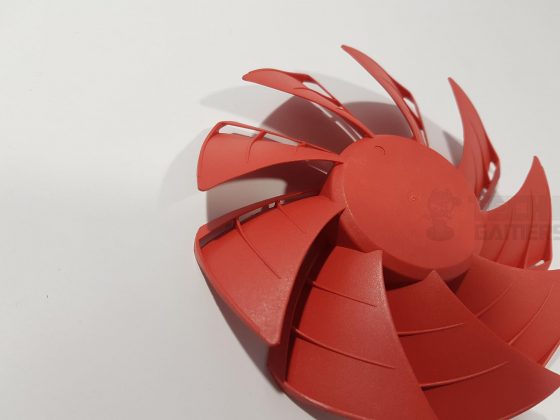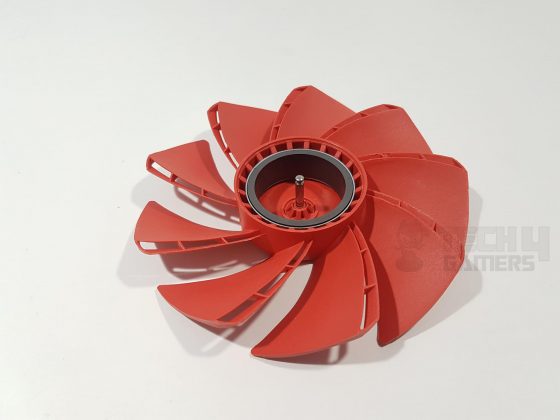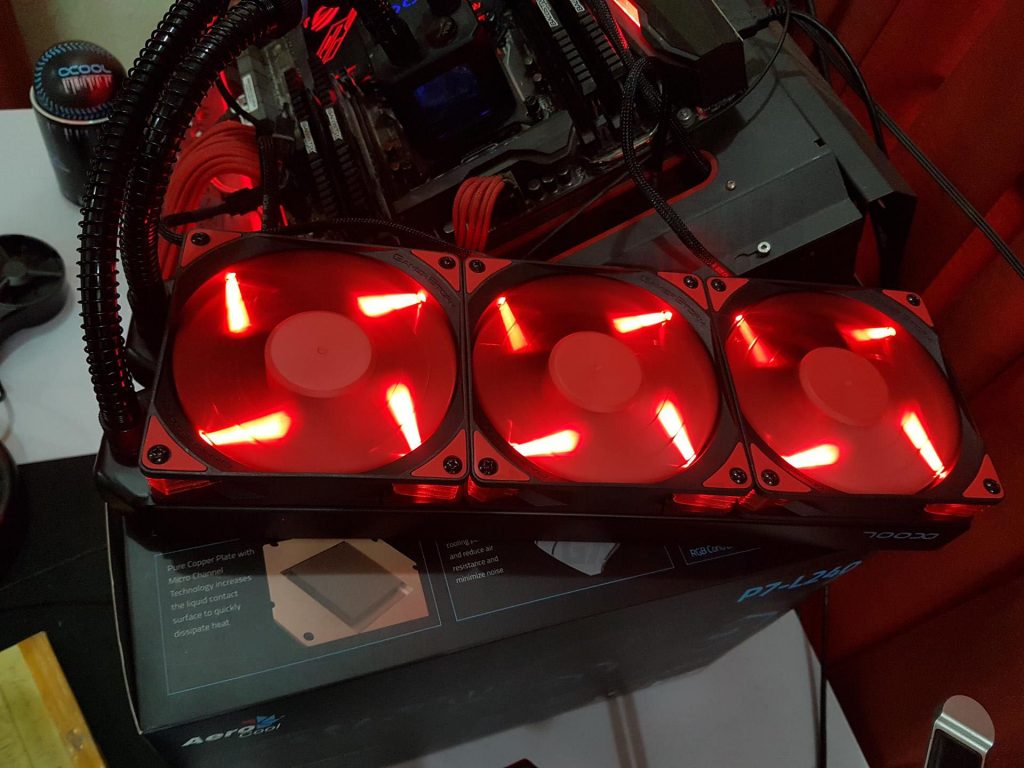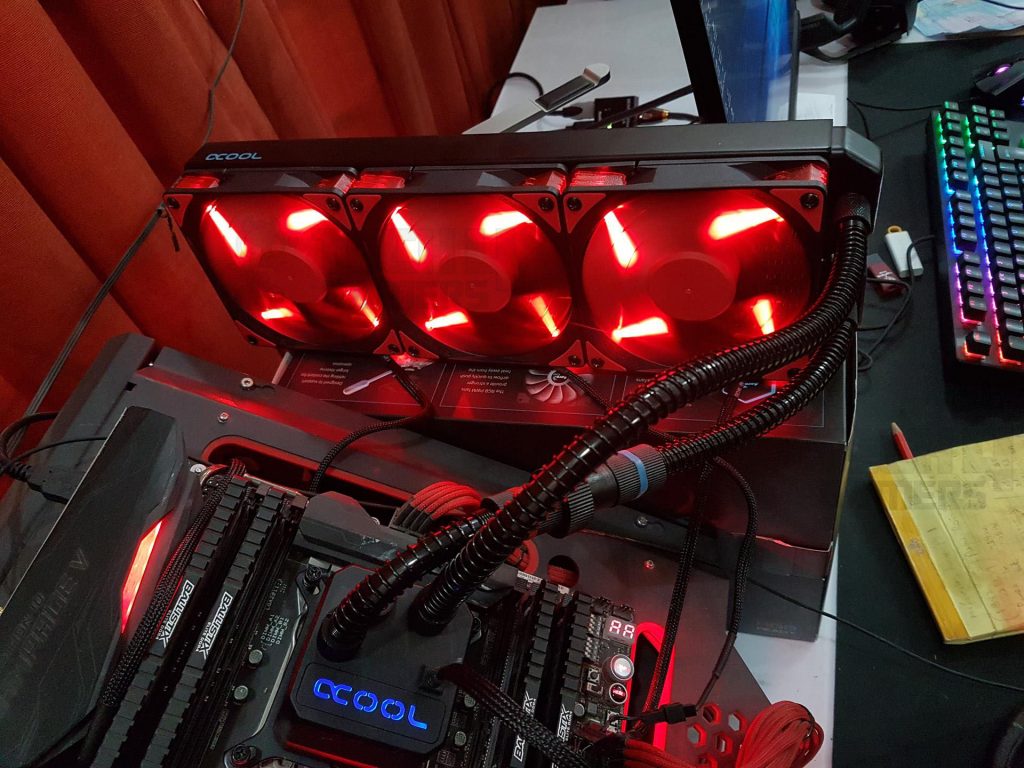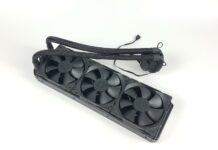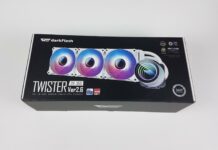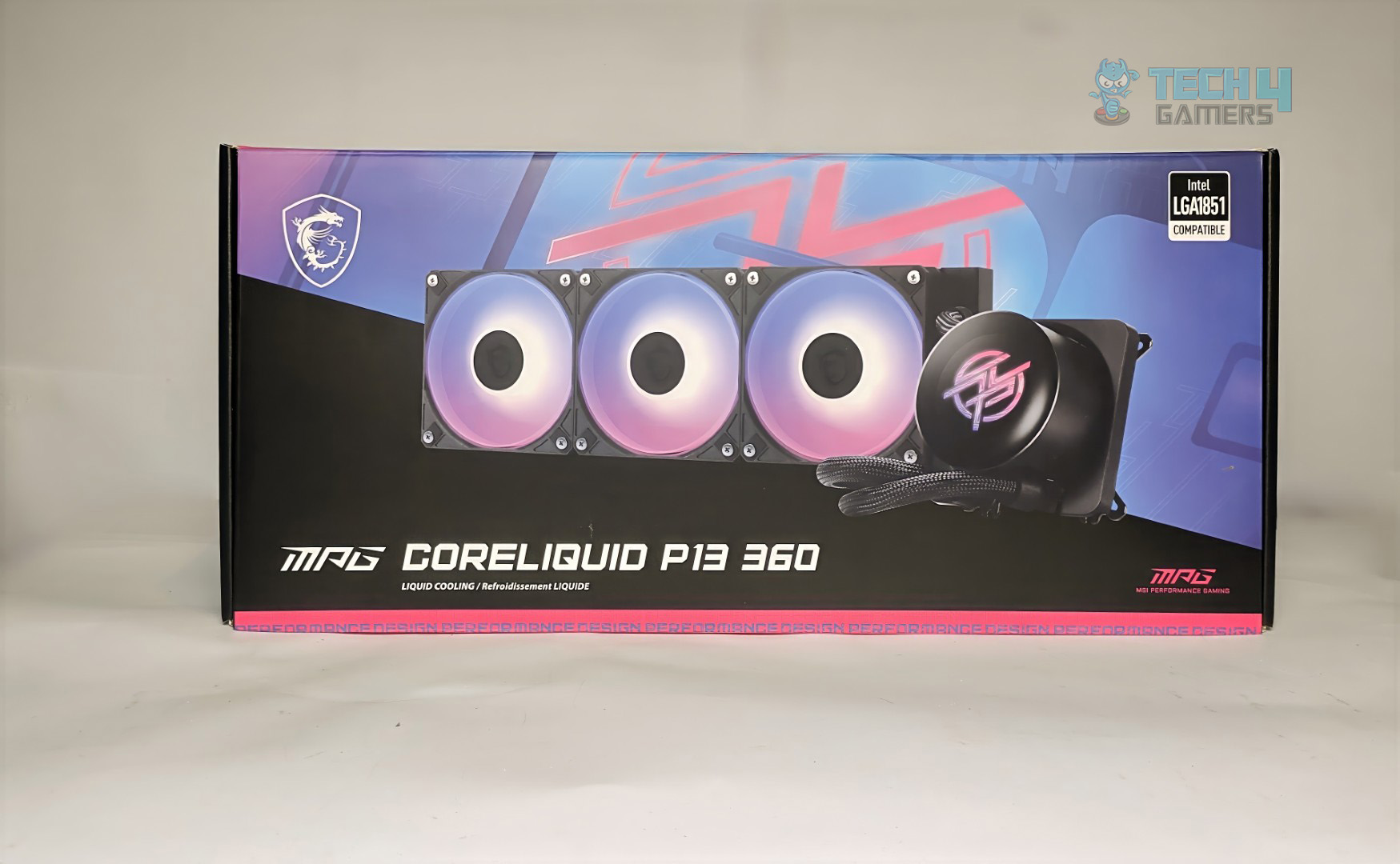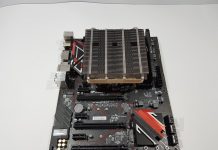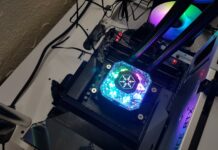Power-Packed Airflow Performance
Review Summary
The Deepcool TF120 fans are tailored for PC enthusiasts seeking high-performance case airflow with customizable aesthetics. They excel in airflow and noise levels but aren’t ideal for radiator-specific cooling. The standout features include a dual-layer blade design, modifiable blades, and fluid dynamic bearings for durability and reduced noise.
Hours Tested: 5-6
Overall
-
Build Quality - 8/10
8/10
-
Design - 9/10
9/10
-
Performance - 8/10
8/10
-
Value - 7/10
7/10
Pros
- High-Performance Airflow
- Customizable Design
- Aesthetically Pleasing
Cons
- Higher Price Point
- Not for Radiators
Deepcool has sent us three of their Deepcool TF120 fans for review. These fans come in three colors which are Red, Blue, and White. We are reviewing the red edition of these fans. TF series is the high-end PC Case fans series from the Deepcool with focus on the ample airflow at a decent static pressure to deliver the today’s PC Chassis cooling needs. Let’s dive in.
- Why you can trust Tech4Gamers: Our reviews are based on dedicated hands-on testing by our team of experienced hardware experts. Find out more about how we test.
Key Takeaways
- The DeepCool TF120 fans are good for PC enthusiasts seeking high-performance case airflow with customizable aesthetics.
- These fans are not for individuals seeking radiator-specific cooling solutions or minimalistic design, given their emphasis on case airflow and modifiability.
- Top features of the TF120 fans include their impressive dual-layer blade design for high air pressure, DIY blade customization for modders, and semi-hermetic fluid dynamic bearings ensuring longevity and reduced noise.
Here’s a look at the fan specifications before we start.
| Overall Dimension | 120×120×26mm |
| Net Weight | 204g |
| Bearing Type | Fluid Dynamic Bearing |
| Rated Voltage | 12VDC |
| Operating Voltage | 10.8~13.2VDC |
| Started Voltage | 7VDC |
| Rated Current | 0.18±10%A(MAX) |
| Power Input | 2.16W |
| Fan Speed | 500±200 – 1800±10%RPM |
| Fan Connectors | 4-pin for motherboard & 4-pin for PSU |
| Max. Air Flow | 76.52CFM(12V)/ 58.39CFM(7V) |
| Noise | 17.6~31.3dB(A) |
| EAN | 6933412712756 |
| P/N | DPGS-FTF-TF120RR |
Packaging and Unboxing
The fans come in a stylish transparent packing which is wrapped in a cardboard box in black color.
Accessories
Let’s see what we have in terms of accessories.

Closer Look
The first thing to note about the Deepcool TF120 fans is that they have a height of 26mm rather than standard 25mm. The overall dimension of the fan is 120x120x26mm. Let’s take a closer look at the fans starting from the front side.
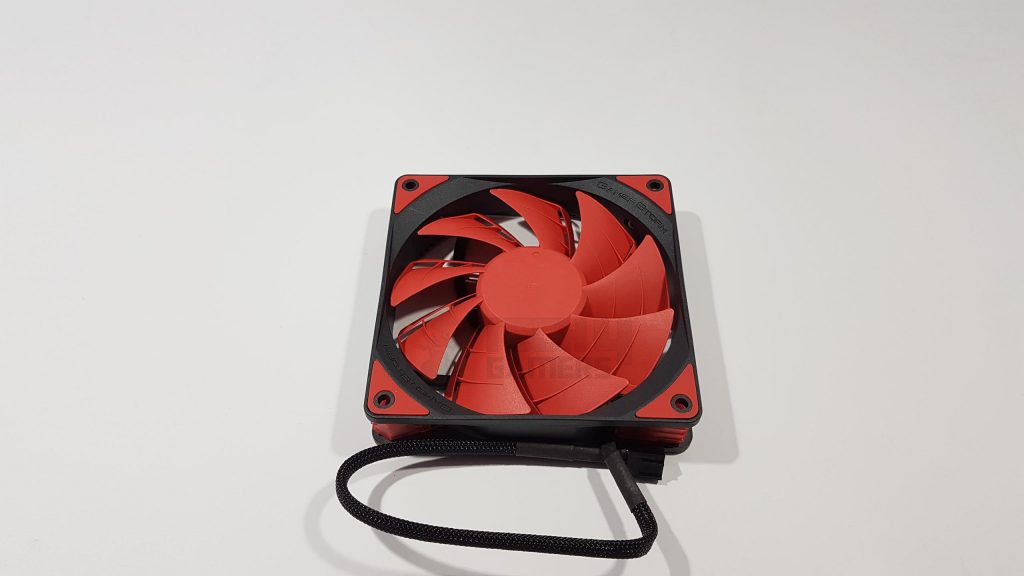
The fan has a black color frame. There are red color anti-vibration pads on each of the mounting corners around the mounting hole, fixed on the frame. GamerStorm is embossed on two opposite corners of the frame.
The fan boasts 9 blades without a motor hub sticker, sporting a 43mm diameter. Each blade flaunts a patented dual-layer design that not only enhances its appearance during operation but also seamlessly integrates with cycling LED lights for a visually stunning effect. This innovation by Deepcool results in impressive air pressure.
With an inward slope design on the frame corners and a straight raised edge between them, the fan has a 111mm distance between its mounting holes on the same side. Each corner features an inner opening where the LED emits light in a cycling pattern, illuminating the surroundings. Notably, the fan exhibits exceptional build quality, ensuring sturdy blades without any flex and a robust frame.
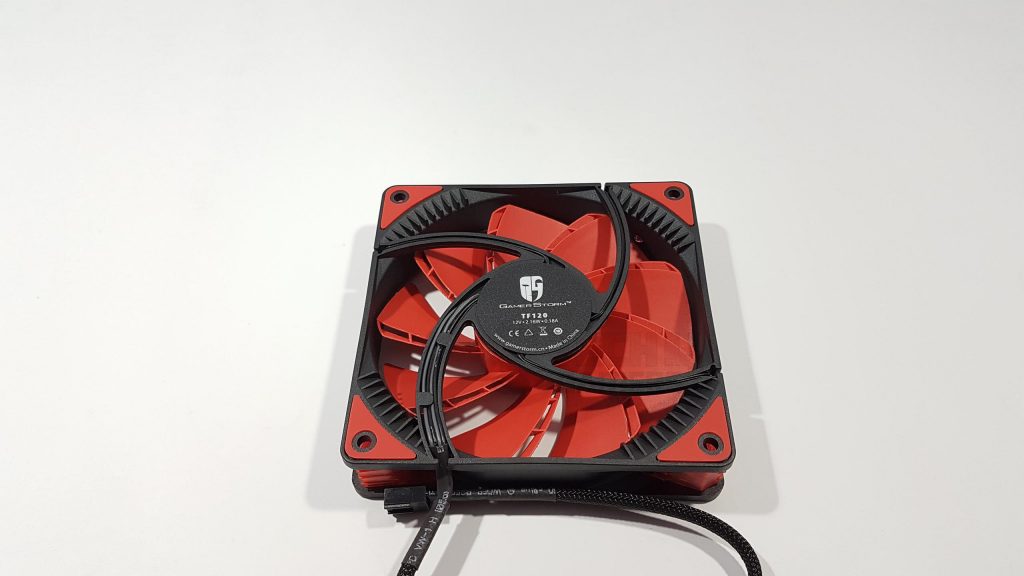
On the backside, there are raised tabs on each of the mounting corners. These are forming 9 channels on each corner forming an air channel design that works in tandem with the dual layer blade design. This approach helps in reducing the noise caused by airflow turbulence. Rest of the frame follows the same design as can be seen on the front side.
There is a black color sticker pasted on the motor hub. There is a 4-arm assembly that is holding the fan blades and connecting it to the main frame of the fan.
Taking a closer look would show that there is a single wire cover in black sheathing is placed on each of the arms and is going towards each of the corner mounts where the LEDs are located. Design wise, they have taken care of every aesthetic aspect.
The fourth arm has more width to it as it is carrying the 4-pin cable to power the fan and the LED. Please, note that LEDs don’t have dedicated power source hence reducing the fan speed would dim the light on these fans.
There are arrow marks on one of the sides of the frame. These are there to help indicate the airflow direction and the blade spin direction. The LEDs on each of the mounting corners are housed inside a red color plastic cover which has bold design and syncs perfectly well with the frame.
Each side of this plastic cover has raised surface. Please, note that only that part of the plastic cover will light up that has LED to it. This actually looks much better in person.
The length of the power cable is approximately 282mm including the 4-pin connector. The cable is nicely braided in black color. There is a small cutout on the bottom part of the frame to route the power cable to the LED and I must say their design team has done a good homework.
Fan Disassembly
Coming to the last design aspect of this fan; which is what I would love to see on other fan offerings in the market as well, the blade assembly is removable. This design is clearly helpful in multiple ways:
- The cleaning task is much easier
- The user can replace the blade with other color blades(s)
- It provides triple proofing against dust, water, and oil.
- This is a heavenly design for modders as they can easily take out the blade without risking the fan’s breakage.
To take out the blade, turn the fan upside down so that you can see its backside. Place your both thumbs with one on each side of the blades and gently push the blades. They will pop out of the mainframe. Take care not to let them fall.
Here are a few pictures of the disassembled fan and the fan bearing.
To put them back on, simply place the blades on the frame by aligning the central locking rod on the blades with the hole on the motor and push them in. You will hear a tick confirming that blades have locked on to the frame.
Testing
Deepcool is targeting these fans as the PC Case fans. Still, we have tested the TF120 fans on the Alphacool Eisbaer 360 which is a 360mm CLC. It is a standard on our test bench that we check the fans for the thermal performance even if they are rated for high airflow than static pressure ones.
The fan has been compared to the following fans:
- Eiswind 12 from Alphacool,
- Corsair HD120 RGB
- Corsair LL120 RGB
- Raijintek Iris 12 RGB
- SilverStone fans
- Noiseblocker fans.
A quick look at Eiswind 12 fan specifications:
| Speed | 55-1700RPM ±10% |
| Airflow | 63.85CFM |
| Static Pressure | 1.66mmH₂O |
| Sound Level | 29dB(A) |
| Electric Input | 12V DC |
The reason we are giving the brief rundown of the Eiswind 12 fans is that these are the stock fans of the Alphacool Eisbaer 360 and holds a reference point for the comparison.
Airflow
We used the PerfectPrime WD9819 Anemometer to measure fan airflow. First, we tested the fan without any obstructions, then we measured airflow through a radiator at 50% and 100% of its rated speeds. The fan’s expected airflow at 12VDC is 76.52 CFM.
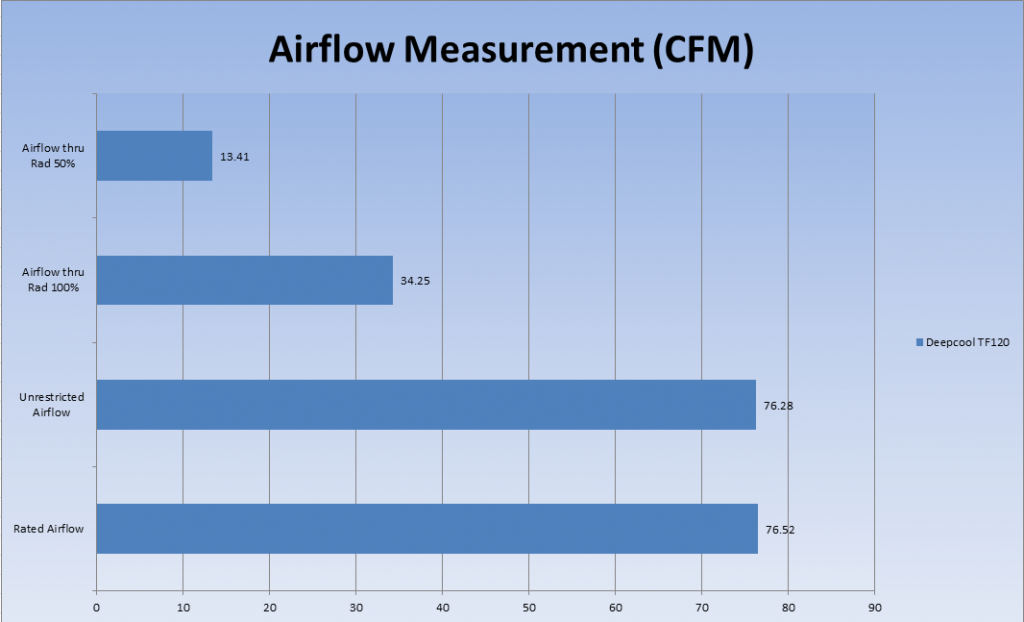
PWM Range
Next up, is the PWM range of the fan and the corresponding airflow values.
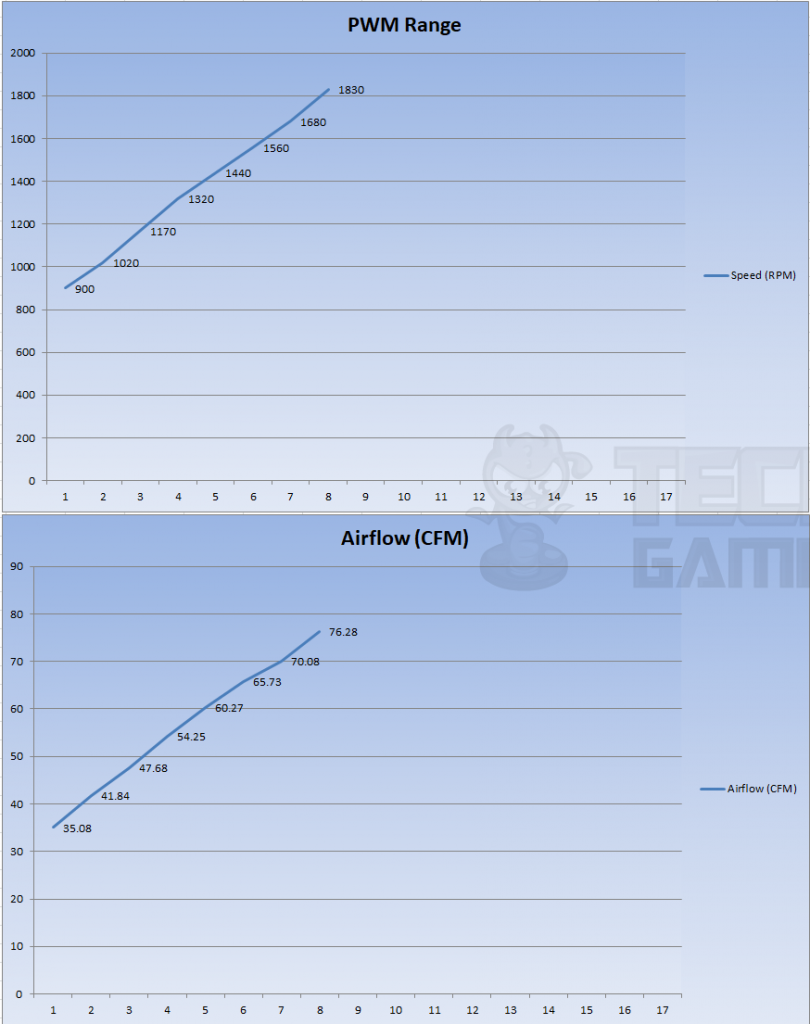
Thermal Performance
Thermal performance of the fan was tested on this test bench:
- Intel i7 6850k
- Noctua NT-H1 thermal paste
- Asus Rampage V Edition 10
- Ballistix Elite 4x4GB @ 3000MHz
- Alphacool Eisbaer 360
- Samsung 840 EVO 250GB
- Corsair AX 1200i
- Microsoft Windows 10 x64 Professional edition build version 1709
The fans were put on 50% and 100% of their speed. The pump of the CLC was put on 100% of the speed. Asus RealBench v1.44 was used to stress test the CPU. RealTemp was used to monitor the temperatures.
Next, the Chip is overclocked to 4.3GHz at 1.350V VCore. XMP is loaded as well. A stress test is run again using the same methodology as described above and delta temps are noted. Here are the results.
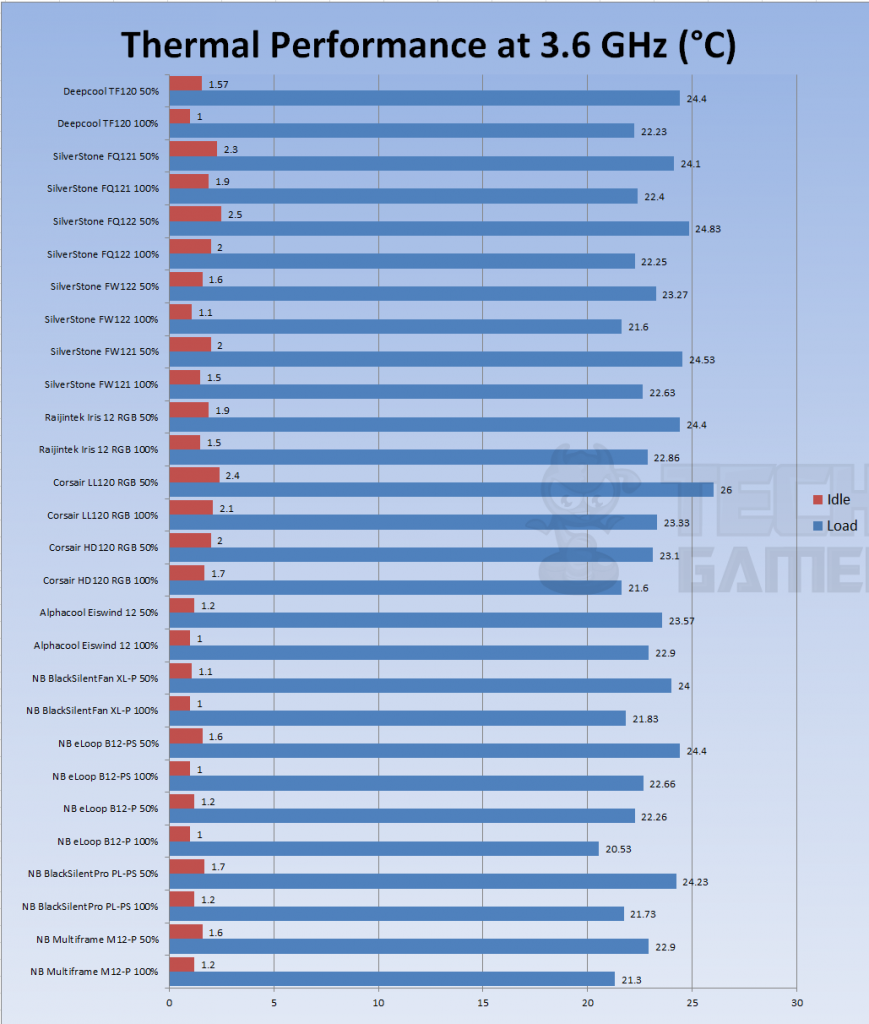
At 50% of the rated speed, there was a difference of 0.83°C between the Alphacool Eiswind 12 and the deepcool tf120 review with Eiswinds taking the lead. At 100% speed, there was a difference of 0.67°C between both fans with the GamerStorm deepcool tf120 review taking the lead. Both fans were neck-to-neck in this testing.
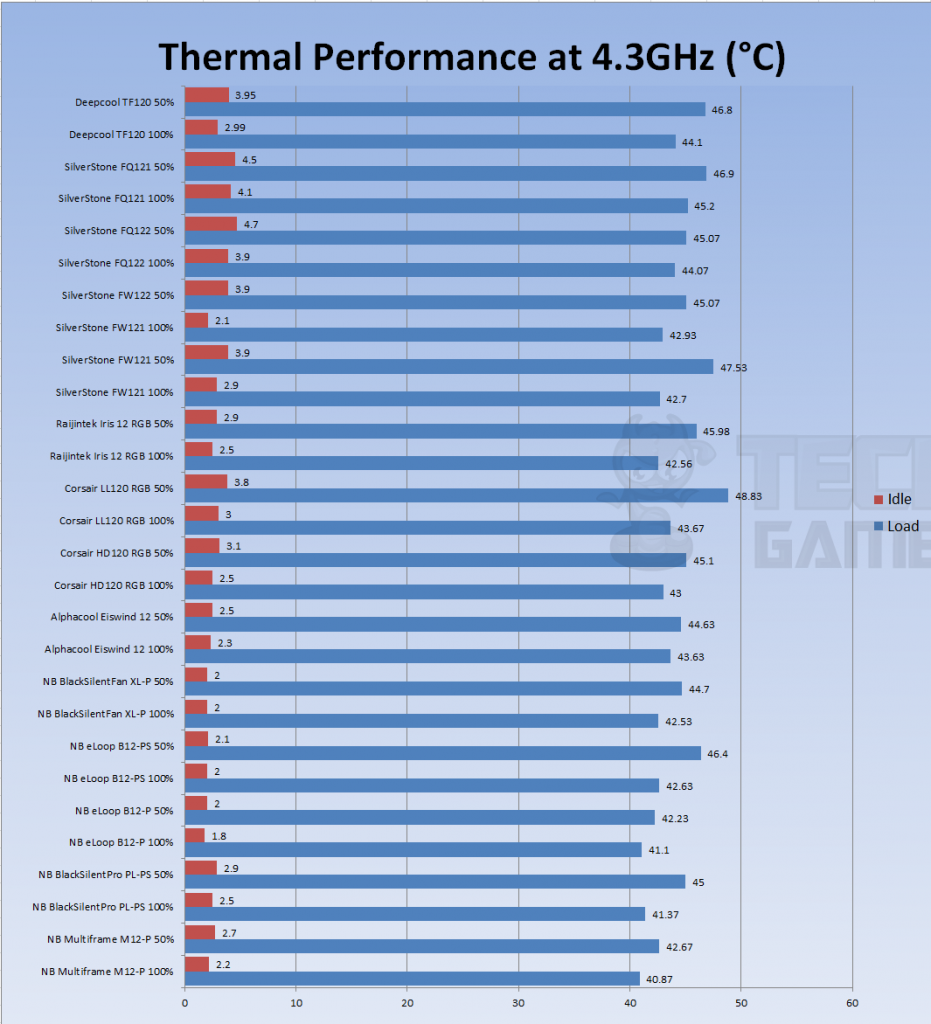
Next, we overclocked the i7 6850k to the 4.3GHz. At 50% of the speed, the GamerStorm TF120s were trailing behind the Alphacool Eiswind 12 with the margin of 2.17°C. At 100% speed, the GamerStorm TF120s were trailing by the margin of 0.47°C. Fans on 100% speed were neck-to-neck against the Eiswind 12s but they have suffered at 50% of the speed.
Acoustics
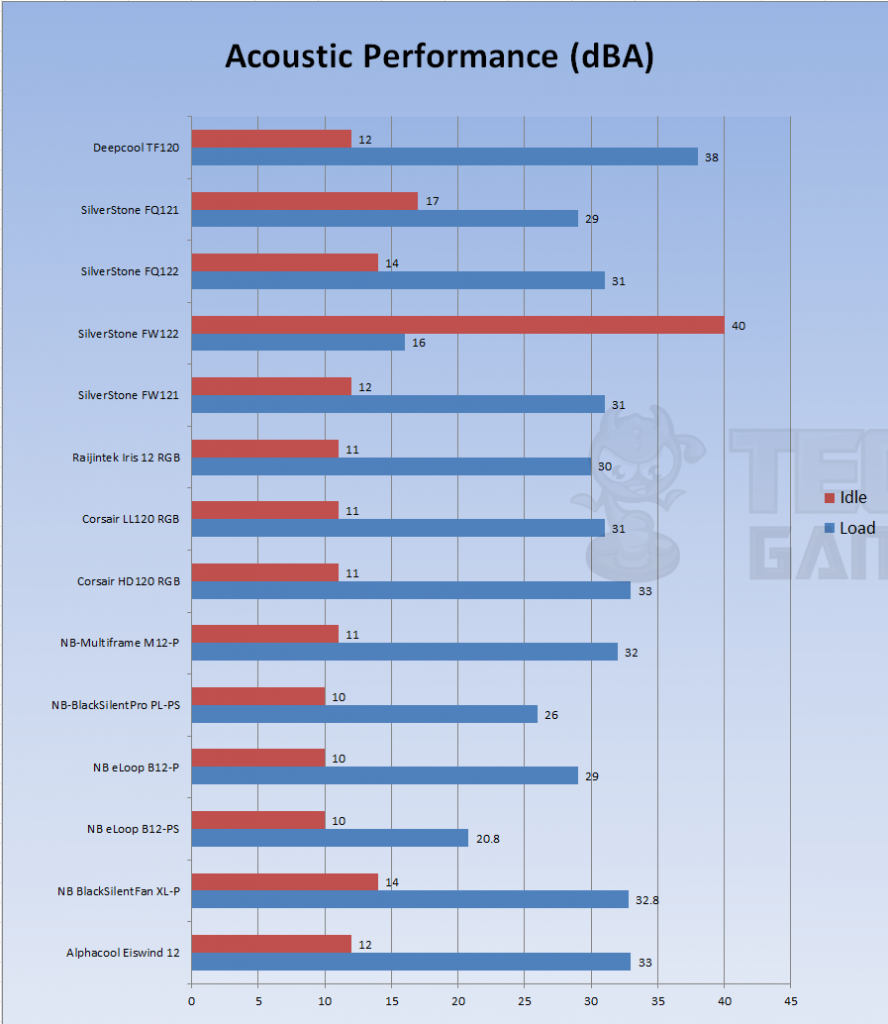
38 dBA was the reading on our Fonseo Digital Sound Meter at full load and 100% speed.
Should You Buy It?
With the review out of the way, you have just two choices.
Buy It If
✅ You Prioritize Performance: If you seek impressive performance in airflow and noise levels, the TF120 stands strong against competitors like the Alphacool Eiswind 12, ensuring top-notch performance for your PC case.
✅ Customization Matters: For enthusiasts and modders, the TF120 offers a unique DIY feature with removable blades. This allows for easy cleaning, color customization, and enhanced modding potential without risking damage to the fan.
✅ Aesthetics Appeal to You: With its vibrant red color LEDs, nine red blades, and a design that enhances the overall look of your setup, the TF120 could be a perfect fit if aesthetics matter to you.
Don’t Buy It If
❌ You Need Radiator Fans: If you’re specifically looking for fans for radiator use, the TF120 might not be the best choice. It’s primarily designed for PC case airflow improvement rather than radiator cooling.
❌ Budget is A Limitation: If you’re on a tight budget and looking for more affordable options without compromising much on performance, there might be alternatives available that offer a better price-to-performance ratio than the TF120.
Wrap Up
We got our hands on the Deepcool TF120 fans from their GamerStorm series, specifically the red color version. These fans, part of the Turbo Speed range, measure 120x120x26mm and weigh 204g, operating between 10.8 and 13.2VDC with a starting voltage of 7VDC. At 12VDC, they spin between 500±200 to 1800±10% RPM, delivering a maximum airflow of 76.52CFM, while at 7VDC, they maintain a speed of 1200RPM with airflow at 58.39CFM.
Utilizing Fluid Dynamic Bearings with an MTBF of 100,000 hrs, these fans sport a patented dual-layer blade design that syncs with a cycling lighting effect, contributing to high air pressure and reduced noise from air turbulence. Additionally, the mod-friendly feature allowing blade removal aids in easy cleaning, color customization, and safeguards against dust, water, and oil.
During our testing, these TF120s performed impressively close to Alphacool Eiswind 12 fans, although it’s important to note that Deepcool specifically targets these fans for PC case use to enhance airflow, not for radiators.
We are thankful to the Deepcool for giving us the opportunity to review their TF120 Red fans.
Up Next: DeepCool MF120S 3-Fans Pack Review
Recent Updates
- January 01, 2024: Few text changes to improve readability. Also added image galleries.
Thank you! Please share your positive feedback. 🔋
How could we improve this post? Please Help us. 😔
[Hardware Reviewer & Editor]
Meet Nauman Siddique, a highly experienced computer science graduate with more than 15 years of knowledge in technology. Nauman is an expert in the field known for his deep understanding of computer hardware.
As a tech tester, insightful reviewer, and skilled hardware editor, Nauman carefully breaks down important parts like motherboards, graphics cards, processors, PC cases, CPU coolers, and more.
- 15+ years of PC Building Experience
- 10+ years of first-hand knowledge of technology
- 7+ years of doing in-depth testing of PC Hardware
- A motivated individual with a keen interest in tech testing from multiple angles.
- I majored in Computer Science with a Masters in Marketing
- Previously worked at eXputer, EnosTech, and Appuals.
- Completed Course in Computer Systems Specialization From Illinois Tech


 Threads
Threads
